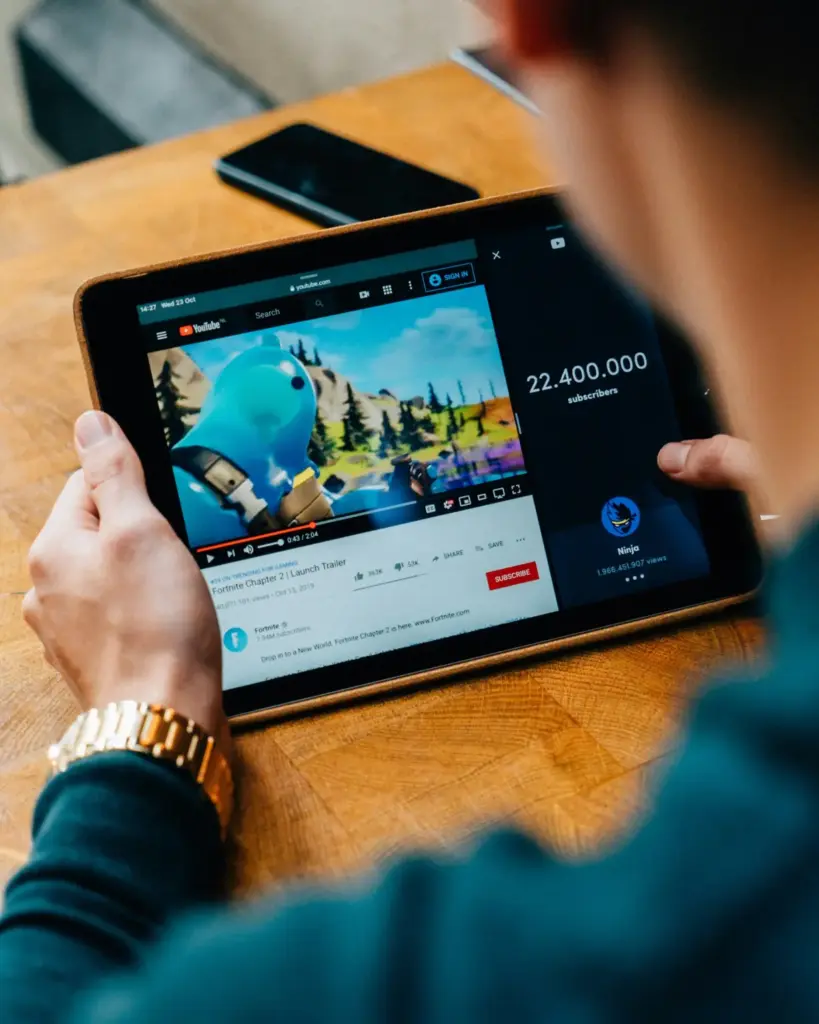
YouTube isn’t just a video-sharing platform; it’s the world’s second-largest search engine. With over 2.6 billion monthly active users, it’s a goldmine for reaching massive audiences and growing your brand. But how do you stand out in a sea of videos? The answer is YouTube SEO.
In this guide, we’ll delve into the strategies that will propel your videos to the top of search results, attract your ideal viewers, and transform your channel into a thriving hub of engagement.
Understanding YouTube SEO
Just like Google, YouTube uses an algorithm to rank videos. While the exact formula is a secret, we know key factors influencing it:
- Relevance: How well your video matches a user’s search query.
- Engagement: Watch time, likes, comments, shares, and click-through rate.
- Quality: Video resolution, production value, and overall viewer experience.
- Freshness: How recently your video was uploaded.
Optimizing Your Channel: The Foundation
- Keyword Research: Identify the terms your target audience is searching for. Utilize tools like Google Keyword Planner, YouTube’s search bar suggestions, and competitor analysis.
- Compelling Channel Name and Description: Your channel name should be memorable and relevant. Your description should clearly state what your channel is about and include relevant keywords.
- Eye-Catching Channel Art: Create a visually appealing banner and profile picture that reflects your brand and content.
- Organized Playlists: Group videos into playlists around specific topics to improve user experience and encourage longer watch sessions.
Optimizing Your Videos: The Meat and Potatoes
- Keyword-Rich Titles: Include your main keyword early in the title. Keep it concise and engaging.
- Detailed Descriptions: Write a comprehensive description (200+ words) incorporating relevant keywords naturally. Highlight key points and include timestamps for longer videos.
- Relevant Tags: Use a mix of broad and specific tags. Don’t spam with unrelated tags.
- Engaging Thumbnails: Design custom thumbnails that are visually appealing and accurately represent your video’s content.
- Closed Captions and Subtitles: These improve accessibility and can be indexed by search engines.
- Cards and End Screens: Use these to promote other videos, playlists, or channels, and encourage viewers to subscribe.
- Video Chapters: Break down longer videos into chapters to improve user experience and navigation.
Finding Your Audience with SEO
- Understand Your Niche: Clearly define your target audience’s interests, demographics, and pain points.
- Create Content They Crave: Focus on topics your audience cares about and provide value through entertainment, education, or inspiration.
- Optimize for Long-Tail Keywords: Target longer, more specific search phrases to attract a highly relevant audience.
- Leverage Community Posts: Share updates, behind-the-scenes glimpses, and polls to foster engagement and gather feedback.
- Cross-Promote on Other Platforms: Share your videos on social media, embed them on your website, and collaborate with other YouTubers.
Ideal Video Length and the Role of Shorts
There’s no one-size-fits-all answer, but data suggests:
- Longer Videos (10+ minutes): Tend to rank higher in search results and can generate more watch time.
- Shorts (Under 60 seconds): Excellent for reaching new audiences, increasing channel visibility, and experimenting with different content formats.
The key is to create a mix of content that caters to different viewing preferences and goals.
2024 YouTube SEO Statistics and Trends
- Video is King: Over 500 hours of video are uploaded to YouTube every minute.
- Mobile Dominance: 70% of YouTube watch time comes from mobile devices.
- The Rise of Shorts: YouTube Shorts now generate 30 billion daily views.
- Longer Videos Win: Videos over 10 minutes long have a higher average view duration.
- Community Matters: Channels with high audience engagement tend to rank better.
Easy SEO Tips for Beginners
- Transcribe Your Videos: This makes your content searchable and accessible.
- Add Time Stamps: Help viewers find specific sections of your videos.
- Create Eye-Catching Titles: Use numbers, questions, and power words.
- Promote Your Videos: Share on social media, forums, and relevant communities.
- Engage with Comments: Respond to viewers and build relationships.
Conclusion
YouTube SEO is a marathon, not a sprint. It requires consistent effort, data analysis, and a deep understanding of your audience. By implementing these strategies and staying on top of trends, you’ll be well on your way to growing a successful and engaging YouTube channel in 2024 and beyond.
Remember, the best SEO strategy is to create high-quality content that people genuinely enjoy watching. When you focus on delivering value, the rest will follow.
